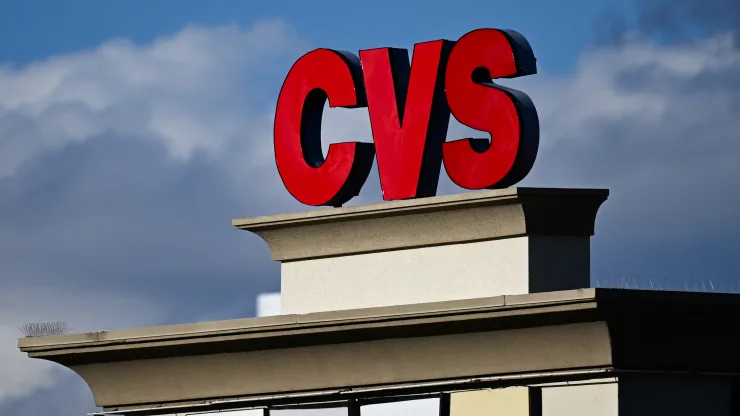CVS Health on Wednesday reported second-quarter earnings that topped expectations, but slashed its full-year profit outlook, citing higher medical costs that have been squeezing the U.S. insurance industry.
The retail drugstore chain also said Aetna President Brian Kane, the top executive at the CVS-owned insurance unit, will leave the company immediately based on the current performance and outlook for the segment.
CVS CEO Karen Lynch will take over management of the business and CFO Thomas Cowhey will also help to oversee it. Katerina Guerraz, CVS Health’s chief strategy officer and head of enterprise affairs, will also become the insurance unit’s chief operating officer.
The company expects 2024 adjusted earnings of $6.40 to $6.65 per share, down from previous guidance of at least $7 per share. Analysts surveyed by LSEG were expecting full-year adjusted profit of $6.97 per share.
CVS also cut its unadjusted earnings guidance to a range of $4.95 to $5.20 per share, down from at least $5.64 per share.
It marks the third consecutive quarter that the company has lowered its 2024 profit guidance.
CVS said its new outlook reflects continued pressure on its health insurance segment, which is seeing increased medical costs and the “unfavorable impact” of the company’s Medicare Advantage star ratings. Those ratings help Medicare patients compare the quality of Medicare health and drug plans.
CVS owns health insurer Aetna. The company’s insurance division includes plans by Aetna for the Affordable Care Act, Medicare Advantage and Medicaid, as well as dental and vision.
Insurers such as UnitedHealth Group, Humana and Elevance Health have seen medical costs spike as more Medicare Advantage patients return to hospitals for procedures they delayed during the pandemic, such as joint and hip replacements.
Medicare Advantage, a privately run health insurance plan contracted by the federal Medicare program, has long been a driver of growth and profits for the insurance industry. But Wall Street has become more concerned about the runaway costs associated with those plans, which cover more than half of all Medicare beneficiaries.
Here’s what CVS reported for the second quarter compared with what Wall Street was expecting, based on a survey of analysts by LSEG:
- Earnings per share: $1.83 adjusted vs. $1.73 expected
- Revenue: $91.23 billion vs. $91.5 billion expected
The company posted net income of $1.77 billion, or $1.41 per share, for the second quarter. That compares with net income of $1.90 billion, or $1.48 per share, for the year-earlier period.
Excluding certain items, such as amortization of intangible assets and capital losses, adjusted earnings per share were $1.83 for the quarter.
CVS reported sales of $91.23 billion for the quarter, up 2.6% from the same period a year ago due to growth in its pharmacy business and insurance unit.
The company noted that sales in its health services segment, which includes its pharmacy benefit manager Caremark, declined during the second quarter. CVS cited price improvements for pharmacy clients and the loss of a large unnamed client.

